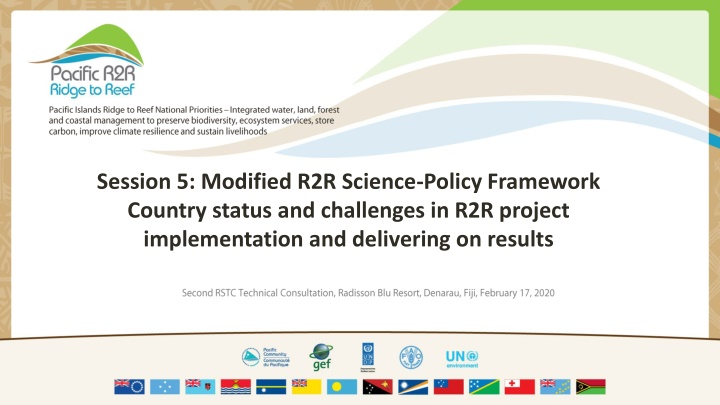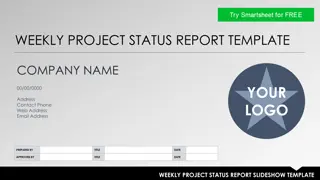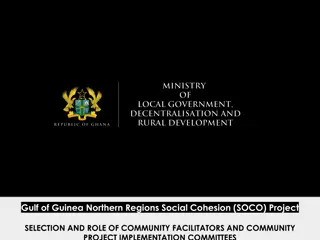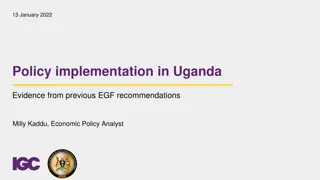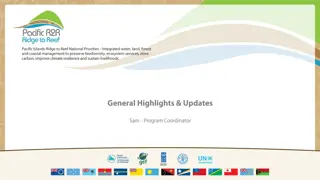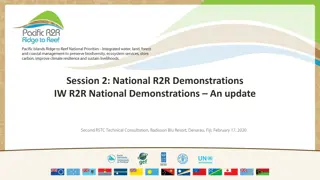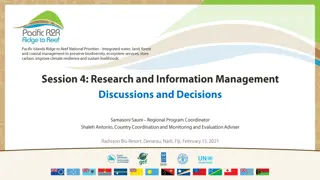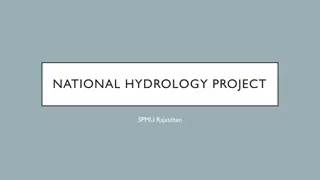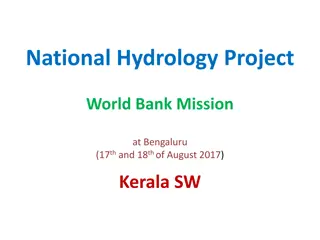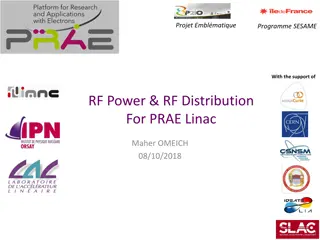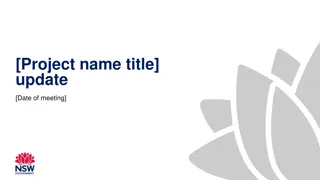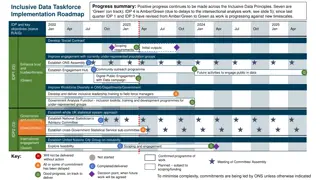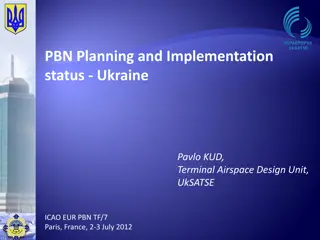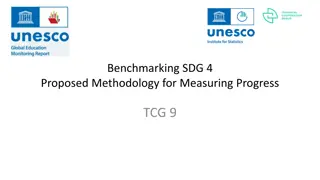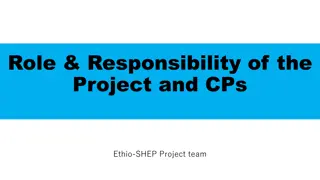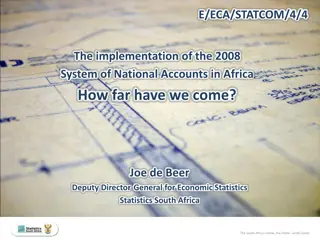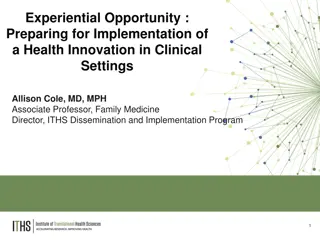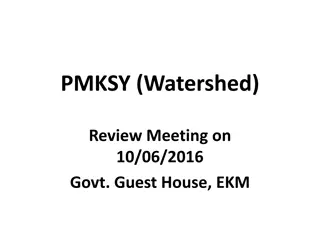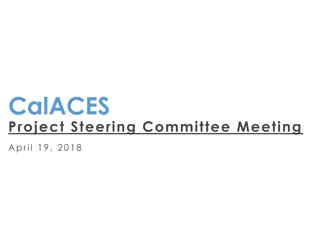Challenges and Progress in R2R Project Implementation
GEF Pacific Ridge to Reef Programme focuses on innovative solutions for resource management in the region. The project faces challenges like Covid-19 restrictions, turnover, and deadlines. Countries like Samoa, PNG, and Vanuatu have made progress in baseline assessments, while others are in the process of IDAs and recruitment. Realistic achievements necessitate careful consideration of in-country capacities. The Science to Policy expertise matrix plays a crucial role in this endeavor.
Download Presentation

Please find below an Image/Link to download the presentation.
The content on the website is provided AS IS for your information and personal use only. It may not be sold, licensed, or shared on other websites without obtaining consent from the author.If you encounter any issues during the download, it is possible that the publisher has removed the file from their server.
You are allowed to download the files provided on this website for personal or commercial use, subject to the condition that they are used lawfully. All files are the property of their respective owners.
The content on the website is provided AS IS for your information and personal use only. It may not be sold, licensed, or shared on other websites without obtaining consent from the author.
E N D
Presentation Transcript
Session 5: Modified R2R Science-Policy Framework Country status and challenges in R2R project implementation and delivering on results
Introduction GEF Pacific Ridge to Reef (R2R) Programme initiative working in the region to test and mainstream innovative solutions, integrated and climate resilient approaches to land, water, forest, biodiversity, and coastal resource management
Science-policy framework scientific and technical processes in Regional IW R2R Project Outcomes 1.1, 1.2 and 3.1 covering: i. Rapid Assessment of Priority Coastal Areas (RapCA) ii. Island Diagnostic Analysis (IDA) iii. State of the Coast Report (SoC) iv. Strategic Action Framework and Planning (SAF, SAP)
In order to achieve scientific and technical Outcomes, Participants must reflect on the following: i. In-country capacity readily available to carry out quality work. Implications of the six-month no-cost extension on national procurement processes for consultants. iii. Strict deadlines for consultants in-country to adhere to in cooperation with the national IW R2R Project manager and lead agency. ii.
Country status in R2R implementation Baselines, RapCA fieldwork done and reports completed: Samoa, PNG, Vanuatu, Solomon Islands, Tonga, Cook Islands Three draft IDAs Palau, Cook Islands and PNG No State of Coast Reports and Strategic Action Framework. Local recruitment underway: Tonga, Solomon Islands, Fiji, Vanuatu, FSM
Realistic achievements within remaining project timelines require: Through close consultation of IW R2R Project Managers with RPCU regarding available in-country capacity. This would require filling in the Science to Policy R2R expertise inventory matrix that would indicate available in-country capacity to carry out scientific and technical processes.
Challenges faced Covid-19 travel restrictions National IW R2R Project Documentations Implementation of Modified R2R Science to Policy Continuum Programmatic approach No-cost extension Staff turnover & national capacity
Covid-19 Travel Restrictions Planned face-to-face mentoring consultations no longer possible. RPCU provided admin support of national projects through emails and teleconferencing Decisions from last RSTC/RSC, work with participating PICs to seek available local expertise.
National IW R2R Project Demonstrations Delayed submissions of national IW R2R documentations ultimately lead to delayed implementation of activities. RPCU provides guidance through virtual coaching Noting that there are genuine reasons for delays such as close of government accounts, general elections, deaths in the family.
Implementation of Modified R2R Science to Policy Continuum Countries undertaking only segments and not the full Science to Policy continuum. More realistic modified guidelines endorsed by RSTC and RSC RPCU currently working with six priority countries to roll out implementation of the framework
Programmatic approach Poor uptake of the programmatic approach will affect harmonized results reporting and puts national upscaling of R2R at risk. Important to note RPCU has no authority over R2R Programme child projects. RPCU advocates supporting programmatic actions.
No-cost Extension Last RSC in October 2020, request of a 12-month no-cost extension submitted by SPC. Cognizant of current 6-moths UNDP policy, however, SPC/RPCU articulates importance of 12-month extension to produce quality results, deliver the planned outputs and achieve intended project outcomes.
Staff Turnover & National Capacity RPCU has faced high staff turnover: Science Officer vacant since 5th February, 2020 RPC vacant in May 2020, filled as of June 2020 Science and National Project Team Leader not filled since September 16th, 2020.
Staff Turnover & National Capacity IW R2R National staff IW R2R Fiji Project Manager resigned 14th October 2020 IW R2R Samoa Project Manager resigned, MNRE providing a temporary replacement
Summary Science to Policy expertise matrix to inform RPCU of available expertise and conditions of availability. RPCU is then able to make precise and efficient management actions and in-country capacity before any initial procurement processes carried out. Process streamlined by using S2P expertise matrix above to determine realistic achievable science to policy deliverables
Presented by: John Carreon Presentation prepared by: John Carreon Photo credits Layout Navneet Lal, Graphics and multimedia assistant Template: Shaleh Antonio, CCMEA References:
